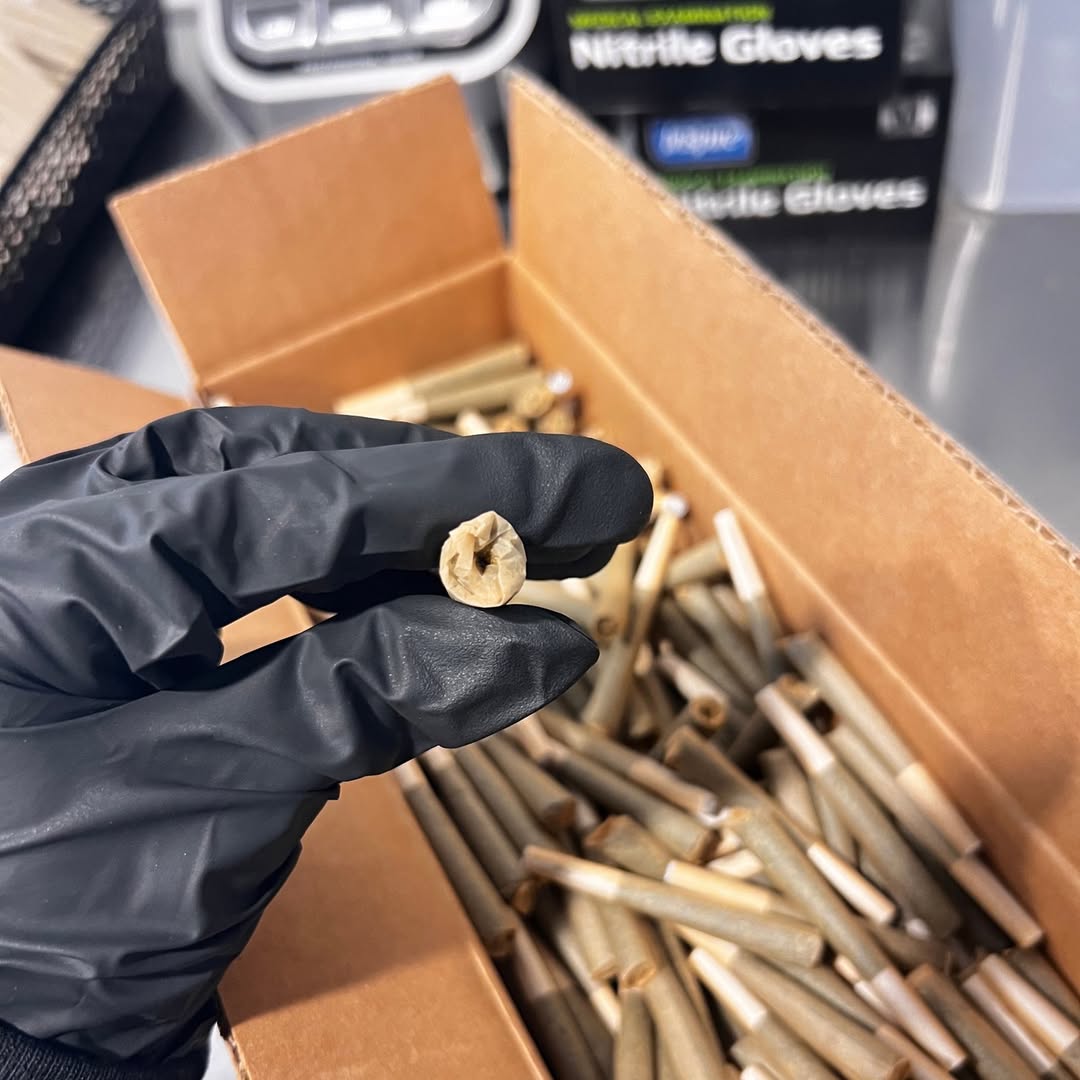From Mars to Cannabis: Former NASA Engineer Creates Robots for Cannabis
Nohtal Partansky applies aerospace technology to automate pre-roll production and revolutionize the industry in the US
Published on 08/25/2025

The cannabis industry generated $32 billion in 2024 in the US, but only 27% of companies are profitable. The pre-rolled joint segment already accounts for 16% of sales, equivalent to $4.1 billion, with an annual growth of 12%.. Image: Arqui
Inside the headquarters of Stiiizy, the top-selling cannabis brand in the United States, in Los Angeles, a robotic machine performs a process that, until recently, relied entirely on human hands. The equipment, called Stardust, takes ten pre-rolled joints, dips them in THC concentrate, and then in kief — a potent form of cannabis similar to powder.
In seconds, each joint comes out coated with an extra dose of the substance responsible for the psychoactive effects of marijuana. In just one hour, the Stardust, manufactured by Sorting Robotics, produces about 1,000 ready-to-consume joints with the assistance of just one human operator.
Meanwhile, in another room of the factory, 140 employees still manually perform similar processes, showing that automation has not completely replaced labor.
Founded in 2019 by Nohtal Partansky (CEO), Cassio Santos (CTO), and Sean Lawlor, Sorting Robotics has already sold around 30 Stardust machines, each costing $250,000, in addition to more affordable equipment.
The company, with 20 employees, is expected to reach $11 million in revenue in 2025, maintaining profitability since 2021. Among its clients are giants like Tilray from Canada and regional brands in the US, such as Blue Fox Brands, which markets the Cali Blaze line in different states.
An Expanding Market — But Full of Obstacles

The cannabis industry generated $32 billion in 2024 in the US, but only 27% of companies are profitable. The pre-rolled joint segment already accounts for 16% of sales, equivalent to $4.1 billion, with an annual growth of 12%.
Despite the high demand, few companies produce enough volume to justify a $250,000 investment in a Stardust. Federal prohibition still prevents interstate distribution, limiting the scale of the factories.
Nevertheless, in California, the segment generated $178.1 million, with 66.3% of that total in pre-rolls. In Canada, between May and October, sales of these products exceeded flower sales by $33 million, indicating they could dominate the market as early as 2025.
In the US, Delaware is also following this trend: in the first weekend of adult-use sales, the state collected $903,000, with a highlight on concentrate-infused pre-rolls, totaling $16.2 thousand — well above traditional ones, which recorded less than $1,000.
The average price of pre-rolls in the US is around $6.50 for standard versions and $8.77 for infused ones, ranging from $5 to over $20, depending on the region.
The Founder's Profile: From Mars to Marijuana
Nohtal Partansky, CEO of Sorting Robotics, breaks the stereotype of a cannabis entrepreneur. An aerospace engineer graduated from Georgia Tech, he worked at NASA's Jet Propulsion Laboratory on the MOXIE project, which produces oxygen on Mars.
After experiences with technology startups, Partansky saw the cannabis sector as a promising area to apply automation. In 2021, he launched the company's first robot for the sector, Jiko.
Sorting Robotics competes with smaller companies like Action Pack, Accelerant, and Roll Pros. However, tobacco industry giants, such as the German Körber, are already testing machines capable of rolling thousands of hemp cigarettes per minute.
It is expected that the federal legalization of marijuana — if the drug is reclassified from Schedule I to Schedule III by the US government — will pave the way for Big Tobacco's definitive entry into the sector.
Partansky believes that, in this scenario, traditional cigarette manufacturers will have an immediate interest in investing in the cannabis industry and does not rule out selling Sorting Robotics when that time comes.
With information from Forbes








